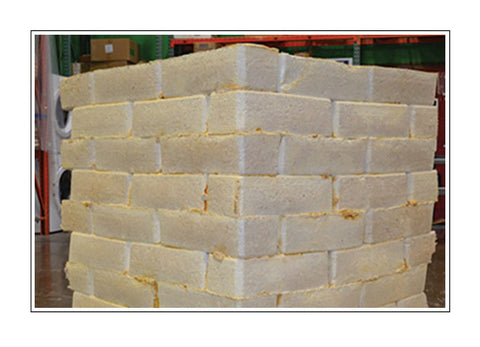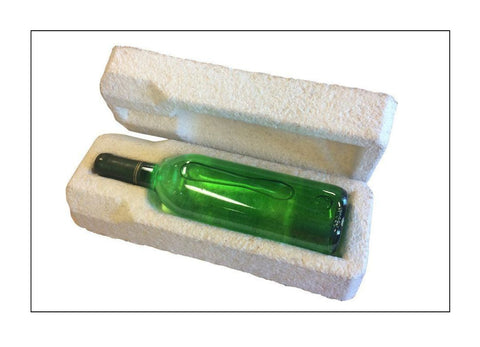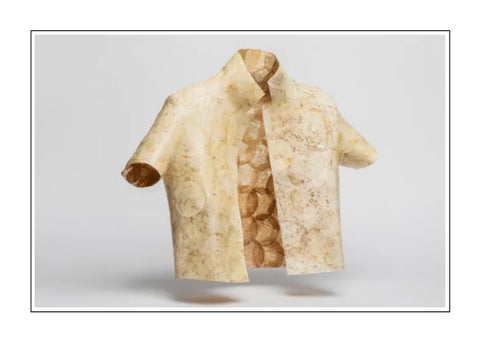In the bustling world of health supplements, there's one ingredient stealing the spotlight: mushrooms. These unsung heroes of both personal vitality (functional mushrooms) and planetary health. Let me uncover these wonderful kingdom and the extraordinary benefits of these humble fungi friends from health benefits, to climate change, to regeneration, sustainability and much more.
What Are Functional Mushrooms?
Picture this: a diverse array of mushrooms, species of fungi, each packed with a powerhouse of nutrients. They carry an important role in the natural world as well as for human health, from the immune-boosting reishi to the mood-enhancing lion's mane, functional mushrooms offer a treasure trove of wellness benefits. And it's not just folklore – modern science is validating what ancient traditions have known for centuries: mushrooms are nature's medicine cabinet. I became amazed when I started learning more about them, and I am talking not only the gourmet mushrooms kind but the ones classified in the healthy food with medicinal purposes.
When and Where Do Functional Mushrooms Thrive?
Ever wondered where these mystical mushrooms call home? From shady forests to lush meadows, functional mushrooms thrive in diverse ecosystems around the globe. And timing is everything – these fungi have their own seasonal rhythms, ensuring that they're at their peak when nature needs them most. If you haven't seen the Paul Stamets documentary on mushrooms I highly suggest it. You can find it on Netflix.
Who Benefits from Functional Mushrooms?
Meet the heroes of our story: health-conscious individuals like you, seeking natural solutions for a vibrant life. Let's take a deeper dive into the vast web of beneficiaries when it comes to functional mushrooms. Beyond just humans, the Earth itself reaps the rewards of their presence. These fungi play a crucial role in nurturing the soil, fostering biodiversity, and maintaining the delicate balance of ecosystems. From microscopic organisms to majestic creatures, the animal kingdom also finds solace in the presence of functional mushrooms. Whether it's providing food and habitat for insects, birds, and mammals, or supporting the intricate food chains that sustain life on Earth, generating a positive environmental impact, mushrooms are true champions of biodiversity and ecological harmony.
Why Are Mushrooms Good for the Planet?
But you might wonder: how do mushrooms save the day for both you and the planet? Let's dive deeper into the different ways:
a) Interconnection: They are the ultimate connectors, linking together plants, animals and microbes in a delicate dance of life. And this is why they are so special.
Consider what lies below the soil, underneath the forest floor, intertwined with the roots of the trees, is a fascinating microscopic network of fungus. This intricate web of life, known as mycelium, is the hidden engine driving the vitality of the entire ecosystem. Like an underground internet, mycelium connects trees, plants, and other organisms, facilitating the exchange of nutrients, water, and information. It's a bustling highway of biological activity, where fungi act as the silent architects of the forest, shaping its health and resilience. So next time you wander through the woods, remember to look beyond the surface – for beneath your feet lies a world teeming with life and wonder, orchestrated by the humble yet mighty fungi.
b) Sustainability: Unlike conventional agriculture, mushroom cultivation is a low-impact affair, leaving minimal footprint on Mother Earth. Mushrooms are nature's ultimate recyclers, breaking down organic matter and enriching the soil for future generations. At their core, fungi are nature's ultimate stewards, tasked with the vital mission of sustaining life in all its forms. Whether it's breaking down organic matter to recycle nutrients, supporting the growth of plants through symbiotic relationships, or regulating the delicate balance of ecosystems, fungi play a fundamental role in maintaining the health and vitality of the natural world. Their prime directive is clear: to sustain, nurture, and perpetuate the interconnected web of life that spans the globe.
c) Cleaning up pollution: But the marvels of mushrooms don't stop there. These remarkable natural resources, fungi also possess a unique talent for cleaning up pollution and healing damaged ecosystems. Through a process called bioremediation, certain species of mushrooms have the extraordinary ability to break down and neutralize harmful pollutants, including pesticides, oil spills, and even radioactive waste. By absorbing toxins and converting them into harmless byproducts, mushrooms act as nature's own purification system, cleaning from waste materials, restoring balance to environments tainted by human activity. It's a testament to the resilience and adaptability of these humble organisms, showing once again that when it comes to healing the planet, mushrooms are truly nature's champions.
d) Plant and Fungi: Mutually Beneficial PartnershipsIn the intricate dance of nature, plants and fungi have formed a timeless alliance, forged through millions of years of evolution. This mutually beneficial partnership, known as mycorrhizae, is a testament to the power of collaboration in the biological realm. Through this symbiotic relationship, fungi attach themselves to the roots of plants, forming a vast network of mycelium that extends far beyond the reach of individual roots. In return for access to sugars produced by the plant through photosynthesis, fungi provide essential nutrients and water to their botanical partners, enhancing their growth, resilience, and overall health. It's a beautiful example of cooperation and coexistence in the natural world, where each partner contributes to the well-being of the other in a harmonious exchange.
e)Fungi as Biochemical Protectors: But the role of fungi extends beyond mere sustenance – they also serve as biochemical protectors, defending plants and ecosystems against threats from pathogens, pests, and environmental stressors. Through the production of specialized compounds known as secondary metabolites, fungi act as natural guardians, warding off predators and pathogens, and bolstering the immune systems of their plant partners. From disease-resistant plants to bioactive compounds with potential medicinal applications, the biochemical arsenal of fungi is as diverse as it is powerful. In a world where threats to biodiversity and ecosystem health are ever-present, fungi stand as silent sentinels, safeguarding the delicate balance of life on Earth.
Other ways Fungi can benefit the earth is with sustainable agriculture, decomposing plastic pollution, decomposing agricultural waste, helping with global warming, as chemical fertilizers, sustainable practices, environmental challenges and many other ways.
What does the future of mushroom looks like in different industries?
As we look ahead to the future, the potential of mushrooms extends far beyond the realm of wellness and environmental conservation. These remarkable fungi are poised to revolutionize a myriad of industries, offering sustainable solutions to some of our most pressing challenges. Some of these industrial uses are:
-
Construction: Building a Greener Future In the realm of construction could be a game changer, mushrooms are emerging as a promising alternative to traditional building materials. By harnessing the natural bonding properties of mycelium, researchers and innovators are exploring the possibility of using mushroom-based materials for everything from insulation and structural panels to biodegradable packaging. These materials offer a renewable, low-impact alternative to conventional building materials, reducing carbon emissions and minimizing environmental footprint. With continued research and development, mushroom-based construction materials have the potential to reshape the way we build, creating a greener, more sustainable future for generations to come.

-
Packaging: From Waste to Resource In the age of plastic pollution, finding sustainable alternatives to conventional packaging materials is more important than ever. Enter mushroom-based packaging – a biodegradable, compostable alternative that offers all the benefits of traditional packaging materials without the environmental drawbacks. Made from agricultural waste and mycelium, these innovative packaging solutions are not only eco-friendly but also lightweight, durable, and versatile. From protective packaging for fragile goods to disposable food containers, mushroom-based packaging offers a scalable, commercially viable solution to the global plastic crisis. With growing consumer demand for sustainable products, organic materials, mushroom-based packaging has the potential to disrupt the packaging industry and pave the way for a circular economy where waste becomes a valuable resource.

-
Textiles: Fashioning a Sustainable FutureEven the fashion industry is embracing the transformative power of mushrooms. With concerns about the environmental impact of conventional textile production, designers and manufacturers are turning to mushroom-based materials as a sustainable alternative. From eco-friendly leather substitutes to biodegradable fabrics, mushrooms offer a renewable, cruelty-free alternative to animal-derived materials and synthetic fibers. By harnessing the natural properties of mycelium, researchers are developing innovative textiles that are not only stylish and functional but also environmentally responsible. As consumer demand for sustainable fashion continues to grow, mushroom-based textiles have the potential to revolutionize the fashion industry, offering a greener, more ethical alternative to traditional materials.

Conclusion:
As we bid farewell to our fungal friends, let's remember the profound impact they have on our lives and our world. So next time you're pondering your wellness journey, consider adding a sprinkle of mushroom magic to your routine. After all, when it comes to health, sustainability, ecosystem connectivity, and environmental protection, mushrooms are leading the charge. Here's to a healthier you, a greener planet, and a future fueled by the incredible power of fungi. Happy Earth Day!















